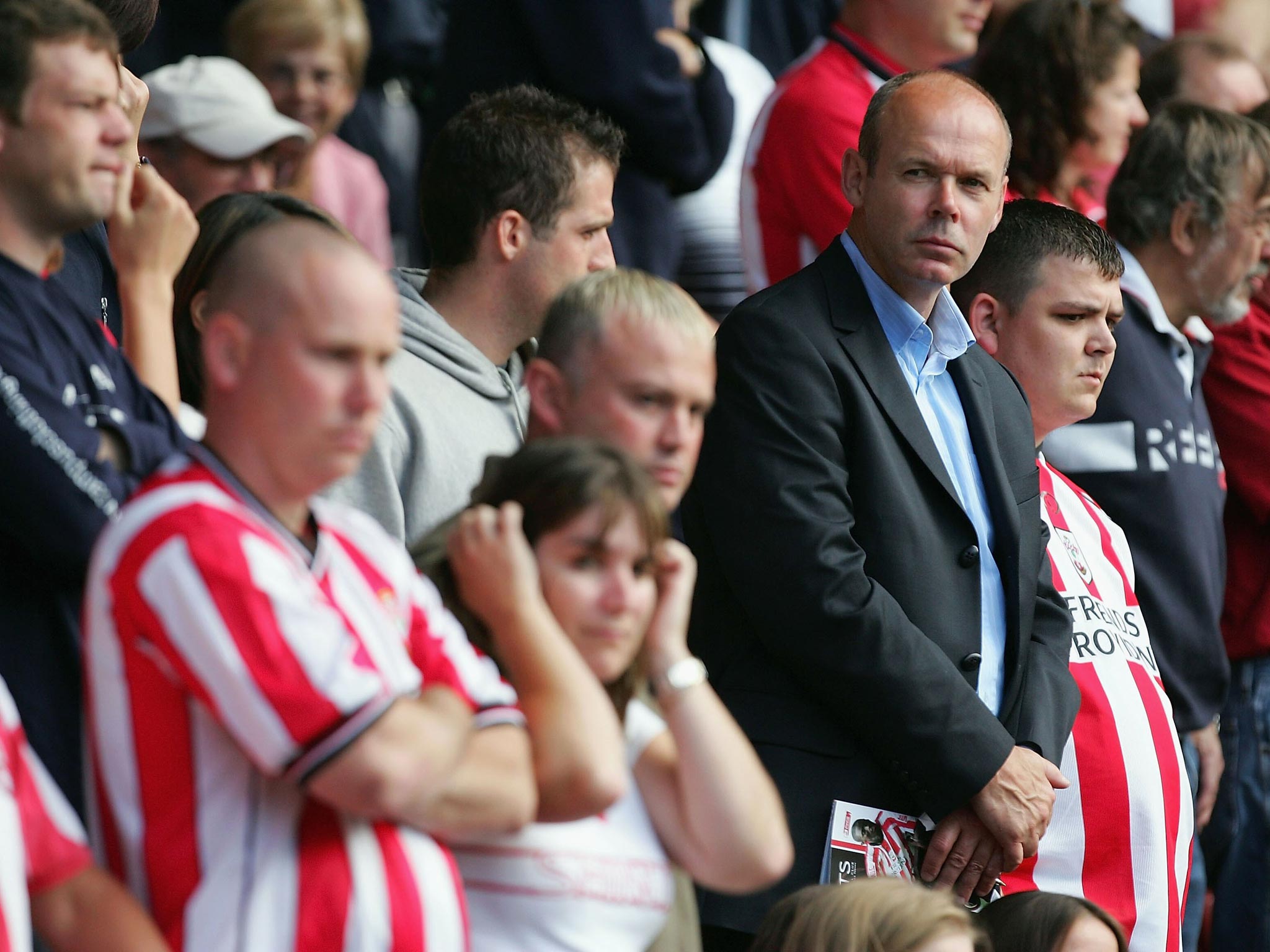Ashling O’Connor: Ralph Krueger may find what Sir Clive Woodward discovered to his cost – you need more than a success-laden CV to work in football
If you lack footballing credentials, supporters will not take you to heart

Your support helps us to tell the story
From reproductive rights to climate change to Big Tech, The Independent is on the ground when the story is developing. Whether it's investigating the financials of Elon Musk's pro-Trump PAC or producing our latest documentary, 'The A Word', which shines a light on the American women fighting for reproductive rights, we know how important it is to parse out the facts from the messaging.
At such a critical moment in US history, we need reporters on the ground. Your donation allows us to keep sending journalists to speak to both sides of the story.
The Independent is trusted by Americans across the entire political spectrum. And unlike many other quality news outlets, we choose not to lock Americans out of our reporting and analysis with paywalls. We believe quality journalism should be available to everyone, paid for by those who can afford it.
Your support makes all the difference.The lure of a job in English football – or more specifically the Premier League – is so strong, it is pretty hard to resist. Who wouldn’t want to be involved in one of the most exciting professional sports competitions in the world? The prospect of getting close to the glamour, money and passion of top-flight football can turn even the most level of heads.
The latest to fall for it is Ralph Krueger, the former NHL player and coach, who was this week announced as the new chairman of Southampton.
He has an impressive track record in ice hockey – most recently guiding Canada’s men’s team to the Olympic gold in Sochi – but no pedigree in football. Indeed he admits he has barely watched the game.
What is it about people who have reached the summit of one sport who believe they can jump into football and enjoy the same degree of success?
You don’t even have to look beyond St Mary’s Stadium to know that it rarely works. Sir Clive Woodward’s time as the club’s technical support director was an unhappy one and came close to permanently tarnishing the halo of coaching genius that he acquired after leading England to a Rugby World Cup victory in 2003.
The cultural fit was all wrong. Oh, to have been a fly on the wall when he first discussed T-Cup (Thinking Correctly Under Pressure) with Harry Redknapp, the first-team manager. “You what? I’d rather ’ave a cuppa tea, mate,” Redknapp might have said before decamping down the road to Portsmouth.
Even if he’d had time to transform Southampton’s training techniques, Woodward would never have got the credit because he was simply “not a football man”.
Just as many fans will forget that it was Rupert Lowe, Woodward’s stockbroker friend and the former chairman, who nurtured the club’s youth academy which has churned out homegrown talent such as Theo Walcott, Alex Oxlade-Chamberlain, Gareth Bale and Adam Lallana. It is now regarded as one of the best in the country.
But when it all went wrong in 2009, with the club tumbling into administration and down the divisions, Lowe was more widely remembered as a hockey-playing public schoolboy who failed to understand the idiosyncrasies of the beautiful game. Stereotypes thrive in football, no more so than when the shit hits the fan.
There are examples in other sports of where switching from one to another has worked. Ian Ritchie successfully transferred from tennis to rugby union after he swapped the top job at the All England Club for the top job at the Rugby Football Union.
But it is difficult to find a case study for success in football. Football is inherently suspicious of outsiders who haven’t supported the same team since birth. That’s not to say that they cannot thrive. The opposite is the truth, in many instances.
But the fresh thinking that works in football tends not to come from other sports but from the world of business. Clubs are, for the most part, SMEs (small to medium-sized enterprises) embedded in their local communities.
Manchester United is one of the biggest brands in world sport but by market capitalisation, of about $2.64bn (£1.6bn), it would not make the FTSE 100. In the FTSE 250, the index of the next most valuable companies, it would be sandwiched between Shaftesbury, a property group, and HICL Infrastructure, an investment company. Both would probably fail to spark an animated discussion with a taxi driver in Bangkok or a barman in Boston.
So, English clubs benefit from the expertise of people from closely related sectors such as merchandising, sponsorship, property development and stadium management.
Hence, Tottenham Hotspur is run by a retailer and property developer, Manchester United by an investment banker with experience in leveraged buy-outs, Chelsea by a capital markets lawyer, Fulham by a chartered accountant and Sunderland by a venture capitalist. All bring a different perspective but the most successful understand that football is not like any other business, nor is it like any other sport.
It is a stretch to see what an ice hockey coach will bring to Southampton. Once again, it is an odd cultural fit.
As Woodward’s experience showed, you can be a proven leader with trophies to boot but if you lack footballing credentials, suspicious fans and players will not take you to heart – because that is what it comes down to: a passion for the game. And that is non-transferable.
Join our commenting forum
Join thought-provoking conversations, follow other Independent readers and see their replies
Comments